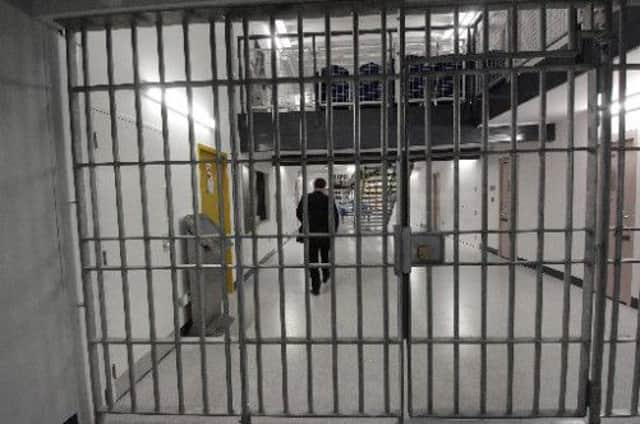Independence: Last-minute bid for prisoners’ vote


SEE ALSO:
Many of the 35 signatories of an open letter, published today in Scotland on Sunday, believe inmates should be given voting rights for the first time to allow them to take part in next year’s ballot.
The plea comes in advance of a Holyrood debate this week on who should be allowed to have a vote in the 2014 referendum. The Scottish Government has made it clear that it does not believe that convicted prisoners should have vote while behind bars.
Advertisement
Hide AdAdvertisement
Hide AdBut the Howard League Scotland, which drafted the letter, backs a degree of prisoner voting, saying the UK is out of step with most of western Europe in upholding a blanket ban.
In a briefing note for MSPs, Howard League Scotland said: “We make this as a moral case, not a legal one. There is an opportunity for the Parliament to put down a marker about the value placed on democratic rights, social justice and effective rehabilitation in Scotland.”
They added: “The question of voting rights for prisoners in the referendum is more acute than in general elections. This vote will determine the constitutional future of their country and may not be repeated in their lifetime.”
Another signatory, Robin McAlpine, director of the Jimmy Reid Foundation, said: “Just because someone has committed a crime does not mean they are no longer a member of our society.
“They too have a right to some say in the future of the nation they belong to, that their children will grow up in.
“We should be very careful about some of the attitudes to people who have committed a crime which suggest they are in any way less than human. That is a dangerous path to take.”
Professor Alec Spencer, a former prison governor, director of Rehabilitation and Care, Scottish Prison Service, and honorary professor of criminology at Stirling University, said anyone serving less than four years should automatically be able to vote, while only life prisoners should be subject to a blanket ban.
“Scotland should take this opportunity to follow the example of most European democracies and if practically possible enable at least some convicted prisoners to vote in September 2014,” he said.
Advertisement
Hide AdAdvertisement
Hide Ad“In the longer term, we should consider this issue fully, and not necessarily follow what has happened in Westminster.”
Tam Baillie, Scotland’s Commissioner for Children and Young People, compared the issue to the lowering of the voting age, which the Scottish Government has backed.
“I welcome the opportunity for MSPs to have a proper and reasoned debate about who should have a say in Scotland’s constitutional future,” he said.
“Just as MSPs carefully considered the issues of 16 and 17-year-olds getting the vote – a vote the consequences of which those young people will live with – I hope they will take this opportunity to carefully consider the issue of prisoner voting.”
A Scottish Government spokeswoman said: “The Edinburgh Agreement confirmed that the franchise at the referendum will be a matter for the Scottish Parliament to determine when it considers the Referendum Bill.
“The Scottish Government does not agree that convicted prisoners should be able to vote while they are in prison.”